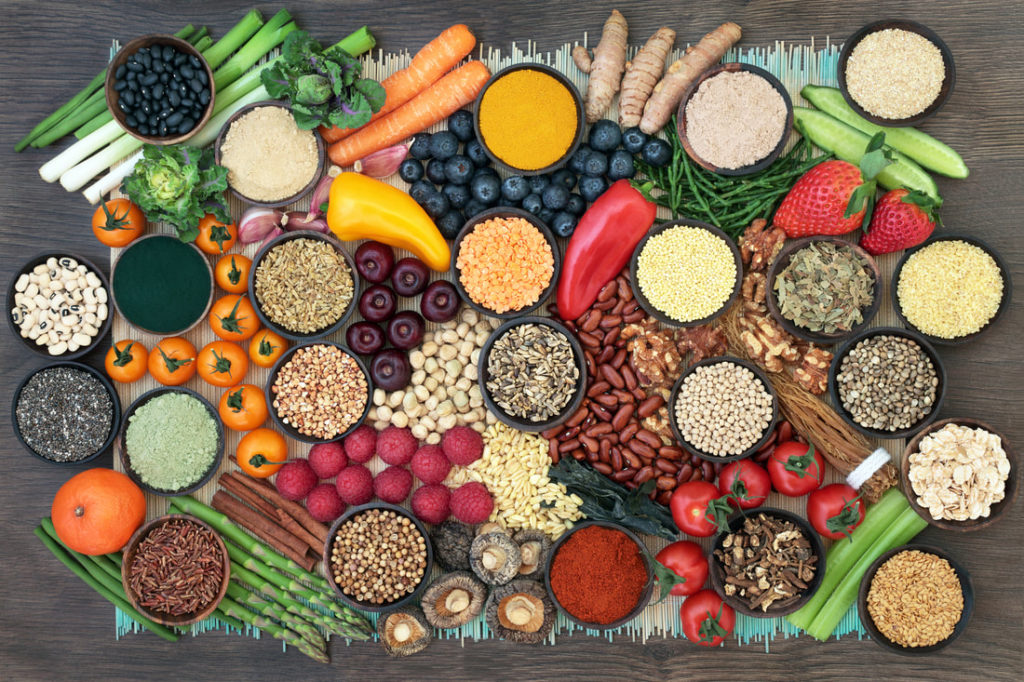

Darren Tremaine

Darren Tremaine
Do FODMAPs Cause IBS?
FODMAP Foods and IBS (Irritable Bowel Syndrome)
If you’ve ever wondered “Do FODMAPs cause IBS?” or if you’ve ever experienced the discomfort and inconvenience of Irritable Bowel Syndrome (IBS), you know just how difficult and confusing it can be. One interesting topic in the realm of digestive health is the potential connection between FODMAPs and IBS. FODMAPs, short for Fermentable Oligosaccharides, Disaccharides, Monosaccharides, and Polyols, are a group of carbohydrates that can be challenging for some people to digest.
But, do FODMAPs cause IBS? or is there more to the story? Let’s dive into the complex world of gut health and unravel this mystery.
Approximately 60-80% of IBS patients may actually have SIBO
Do FODMAPs Cause IBS?
Research suggests that FODMAPs can contribute to IBS symptoms in certain individuals. These poorly absorbed carbohydrates can ferment in the gut, through microbial fermentation, especially the small intestine, leading to gas, bloating, stool changes, and other discomforts. What happens in many individuals is these FODMAP molecules will feed bacteria within the small intestine and they will give off a byproduct of gases. However, it’s important to note that not everyone with IBS reacts to FODMAP containing foods.
Does a Low FODMAP Diet Help IBS?
Many of those with IBS with see between a 20-80% improvement in symptoms from just the low FODMAP diet alone. That being said, you miss out on many healthy and delicious foods on a low FODMAP diet. You may be wondering and worried that a low FODMAP diet may become your life and that you’ll be stuck with it forever, but i’m here to tell you that may not need to be the case. If we can identify the underlying cause of the FODMAP reaction, then there’s every possibility you can go back to enjoying the foods you love!
The SIBO and IBS Connection
Understanding SIBO’s Prevalence:
Studies indicate that a notable percentage of individuals with IBS also have Small Intestine Bacterial Overgrowth (SIBO). In fact, approximately 60-80% of IBS patients may actually have SIBO, making it a significant underlying factor to explore for those with IBS or struggling with FODMAP reactivity.
Testing the Microbiome and SIBO Breath Test:
- Microbiome Analysis – Delving into the world of your microbiome through specialized tests can provide insights into the composition of your gut bacteria.
- SIBO Breath Test – This non-invasive test measures the gases produced by bacteria in your small intestine, helping to diagnose or rule out SIBO.
Note: Our clinic can provide at home testing for SIBO and the microbiome anywhere in Australia!
Book an Appointment with our Gut Specialist Naturopath
Online and phone appointments available Australia wide

Is FODMAP the Issue, or are the Gut Bacteria to Blame?
Do FODMAPs cause IBS? or do bacteria/microbes cause IBS? Rather than thinking of FODMAP as being the enemy, we need to consider WHY the gut is reacting to these foods. More often than not, the over fermentation of these foods is the main contributor of symptoms, hence going to the source is important.. the bacteria! Identifying and eradicating any bacterial or microbial issues is the key to be able to tolerate the foods again.
Working with a Gut and SIBO Specialist
Navigating the intricate world of gut health requires expertise, and consulting with a gut and SIBO specialist can be instrumental in identifying the root cause of your FODMAP reactivity. These professionals can guide you through a tailored approach to address your specific concerns.
Treatment Options
If SIBO is identified as the underlying issue, various treatments may be recommended. Berberine, oregano oil, allicin, partially hydrolysed guar gum (PHGG), prokinetics, and specific probiotics have shown promise in treating and managing SIBO, and alleviating associated symptoms. Always consult with your healthcare provider before starting any new treatments.
Rule Out Other Issues
While FODMAPs and SIBO are important considerations, it’s equally crucial to rule out other potential contributors to your digestive discomfort, regardless of if FODMAPs cause IBS in yourself or not.
Issues such as Lactose intolerance, Coeliac Disease and Thyroid Conditions are just a few issues that can cause IBS-like symptoms, so it’s best to rule these out first.
- Lactose Intolerance – This is a condition where people begin reacting to the sugar in dairy, lactose. Restricting lactose free dairy or testing for lactose intolerance can help determine if this is the underlying issue.
- Coeliac Disease – This autoimmune condition triggered by gluten ingestion can mimic IBS symptoms and disrupt the gastrointestinal symptom in many ways. Testing this through your doctor is advised. Not that results may not be accurate if consuming a gluten free diet.
- Thyroid Conditions – Imbalances in thyroid hormones can impact digestive health, especially in the speeding up or slowing down of gut motility, potentially mimicking some IBS symptoms. If not tested already, ask to test the thyroid through your doctor to rule this out.
The relationship between FODMAPs and IBS is intricate and varies from person to person. If you’ve found yourself wondering “Do FODMAPs cause IBS?” or you find yourself reacting to these fermentable carbohydrates, investigating the possibility of SIBO with a specialised practitioner may unveil the missing pieces of the puzzle. Testing your microbiome, working with a specialist, and exploring targeted treatments can pave the way to a more comfortable and digestive-friendly life.
Remember, your gut health is a unique journey, and understanding it is the key to finding lasting relief. Book in with our gut specialist naturopath to get to the bottom of your gut issues once and for all!
Book an Appointment
Lets get on top of your gut health issues once and for all!

Location
2/773 Marion Rd, Ascot Park 5043 SA, Australia
Call
0422 544 312
Email Us
admin@adelaidenaturopathic.com.au
